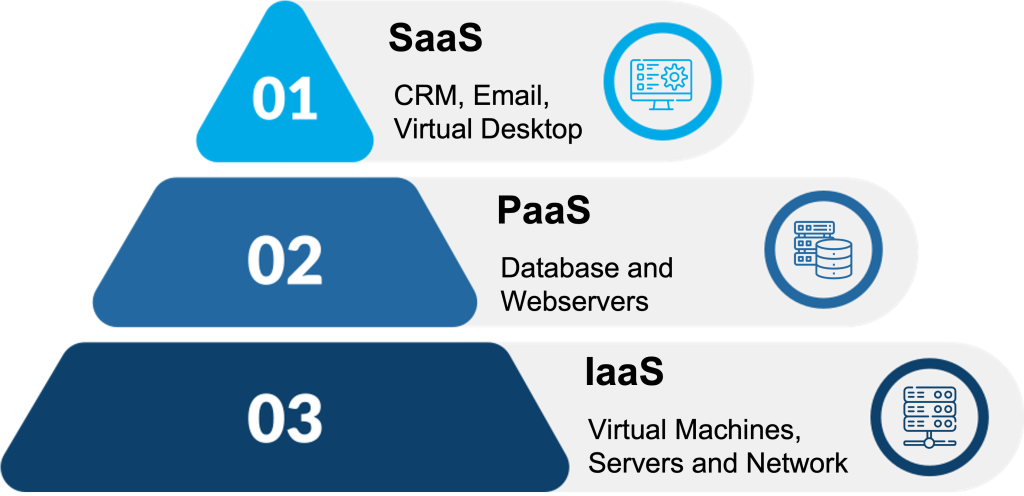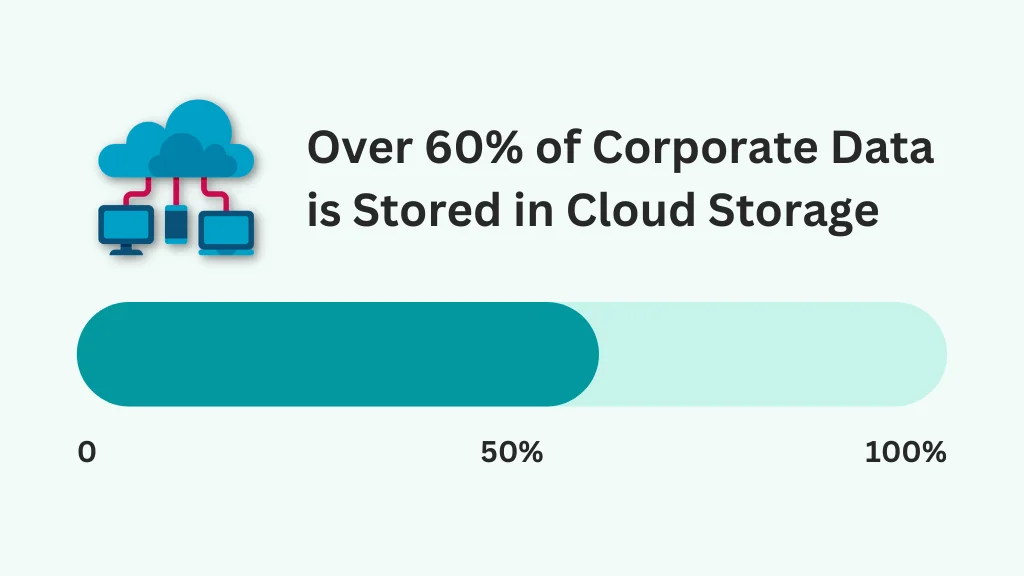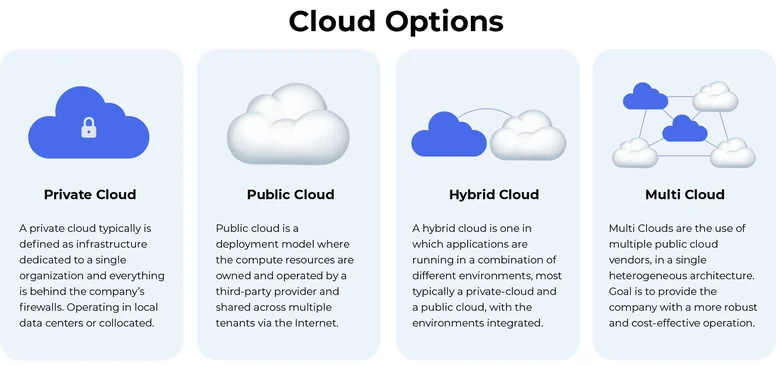Why Do Businesses Need Cloud App Development Services?
Cloud app development services are redefining business infrastructure, scalability, and user engagement strategies in virtually every industry. With advancements in cloud computing services, the ability to build, deploy, and scale applications in the cloud has shifted from an innovative perk to a critical business strategy. A reliable software development company can guide your business through this transition, offering expert insights and tailored solutions. This guide will delve deep into the landscape of cloud app development services, covering everything from technical fundamentals to emerging trends and practical industry applications, ensuring you understand how cloud technology can transform your business.
1. What Exactly Are Cloud App Development Services?
At their core, cloud app development services encompass the development and deployment of software applications that are primarily hosted in cloud infrastructure rather than on local servers. These applications rely on distributed data centers and leverage cloud infrastructure to provide scalable, flexible, and cost-effective solutions. A skilled software development company can help businesses harness the full potential of cloud-based apps, ensuring seamless integration with platforms such as Amazon Web Services (AWS), Microsoft Azure, and Google Cloud Platform. With cloud infrastructure managed by the cloud provider, developers and businesses can focus more on application functionality and less on server maintenance and data storage.
2. Key Components of Cloud App Development Services
Developing cloud applications requires a unique set of services that include infrastructure, platform tools, cloud storage solutions, and various integrations. Below are the primary building blocks:

Image source: Miraclesoft
-
Infrastructure as a Service (IaaS): IaaS provides essential computing resources over the internet. It includes virtual machines, storage, and networking. For example, Amazon’s EC2 (Elastic Compute Cloud) allows developers to quickly spin up virtual servers on demand.
-
Platform as a Service (PaaS): PaaS provides a complete development and deployment environment in the cloud, where developers can create, test, and deploy applications without managing underlying infrastructure. Examples include Google’s App Engine and Microsoft’s Azure App Services.
-
Software as a Service (SaaS): SaaS applications are fully managed software solutions that users access via the internet. Examples include Salesforce for CRM, Dropbox for storage, and Slack for team communication.
-
Database as a Service (DBaaS): Cloud-based data management allows applications to store and retrieve data on cloud servers. Major cloud providers offer managed database services like Amazon RDS and Google Cloud SQL, simplifying data management.
-
Serverless Computing: Serverless platforms, such as AWS Lambda and Azure Functions, allow developers to execute code without worrying about managing servers, improving deployment speed and scalability.
-
API and Microservices Architecture: APIs and microservices architecture enable cloud applications to communicate with various services and platforms, making them highly modular, which in turn increases development agility and operational efficiency.
3. The Benefits of Cloud App Development Services
Moving to cloud app development services brings a wealth of advantages that can reshape how businesses operate, scale, and secure their digital assets. Nowsaday, over 60% of corporate data is stored in the cloud, reflecting its growing trustworthiness for critical information management.

Image source: Connectbit
Let’s break down the main benefits:
- Cost Efficiency: Cloud app development services eliminate the need for significant upfront hardware investments and offer flexible pay-as-you-go pricing models. Businesses only pay for the resources they use, allowing better budget control and reducing operational expenses. Additionally, auto-scaling helps businesses accommodate variable workloads without additional costs.
- Rapid Scalability and Global Reach: Scalable app development allows businesses to scale resources instantly. During peak usage, such as sales promotions or app launches, cloud platforms can dynamically adjust resources to maintain optimal performance. Global reach is another key benefit, as cloud providers operate data centers worldwide, enabling low-latency access for users everywhere.
- Enhanced Collaboration and Accessibility: Cloud app development services make applications accessible from any device with an internet connection, facilitating seamless collaboration. Team members can share data, edit documents, and view updates in real-time, making remote work and international collaboration more efficient.
- Robust Security and Compliance: Leading cloud providers invest heavily in security, offering built-in encryption, identity management, and compliance with data protection standards like GDPR and HIPAA. This protects sensitive information and ensures that companies meet regulatory requirements without additional resources.
- Reliability and Disaster Recovery: Cloud providers operate with high redundancy and failover systems, meaning that in the event of hardware failure, services continue to run uninterrupted. Disaster recovery protocols, including automated backups, ensure business continuity even in worst-case scenarios.
Have a Project Idea in Mind?
Get in touch with Savvycom’s experts for a free consultation. We’ll help you decide on next steps, explain how the development process is organized, and provide you with a free project estimate.
4. Types of Cloud App Development Services
Selecting the right cloud model is vital for maximizing efficiency and security. Here are the primary types of cloud deployment in cloud app development services:
-
Public Cloud Solutions: Public cloud platforms, such as AWS, Azure, and Google Cloud, offer cost-effective solutions by providing shared resources to multiple users. Public clouds are ideal for applications requiring scalability, flexibility, and minimal configuration.
-
Private Cloud Solutions: Private clouds are dedicated environments where businesses maintain complete control over the infrastructure. They’re ideal for industries with stringent security requirements, like finance or healthcare, as they allow for custom security configurations.
-
Hybrid Cloud Solutions: Hybrid cloud solutions blend public and private cloud elements, allowing businesses to keep sensitive data on-premises while benefiting from the scalability of the public cloud. This setup is popular for organizations seeking a balance between security and flexibility.
-
Multi-cloud Solutions: Multi-cloud environments involve using services from multiple cloud providers, such as combining AWS for application deployment and Google Cloud for AI/ML capabilities. Multi-cloud strategies enhance reliability by reducing dependency on a single provider and enable businesses to take advantage of specialized services from different providers.

Image source: Nudgeit
5. Key Features of Cloud App Development Services
Cloud app development services offer a suite of features designed to enhance the efficiency, scalability, and security of applications. These features include multi-platform compatibility, allowing applications to run seamlessly across various devices and operating systems, whether on desktops, tablets, or smartphones. Another essential feature is auto-scaling, where cloud infrastructure automatically adjusts resources to meet fluctuating demand, ensuring consistent performance during peak usage without incurring unnecessary costs during low-traffic periods.
Cloud app development services also offer integrated data security and compliance tools to safeguard sensitive data. Features such as encryption, identity and access management (IAM), and regular compliance audits support adherence to industry standards like GDPR and HIPAA. Additionally, collaborative development tools and version control features facilitate team-based workflows, allowing developers to collaborate in real-time. These features are particularly valuable for distributed teams, enabling them to track code changes, roll back to previous versions, and enhance productivity.
6. Industry Use Cases for Cloud App Development Services
- Retail and E-commerce: Retailers utilize cloud app development services for inventory management, personalized recommendations, and transaction processing. For example, Amazon’s retail platform leverages cloud AI to offer dynamic pricing and real-time inventory tracking.
- Healthcare: Cloud technology supports telemedicine, patient data storage, and AI-driven diagnostics. By storing health records in the cloud, healthcare providers improve accessibility while maintaining regulatory compliance.
- Financial Services: Cloud-based apps in finance enable secure transactions, fraud detection, and compliance monitoring. Banks use machine learning in the cloud to analyze transaction patterns, enhancing fraud detection capabilities.
- Media and Entertainment: Streaming services like Netflix rely on cloud resources to deliver video content globally. Using cloud-based infrastructure, they provide adaptive streaming based on internet speed, ensuring high-quality viewing.
- Education: Educational platforms leverage cloud app development services to host virtual classrooms, enabling collaborative learning environments and facilitating access to educational resources from anywhere.
Looking For a Trusted Tech Partner?
We’ll help you decide on next steps, explain how the development process is organized, and provide you with a free project estimate.
7. Emerging Trends in Cloud App Development for 2025
-
AI and Machine Learning Integration: The integration of AI and ML capabilities into cloud applications is revolutionizing industries by enabling predictive analytics, personalized user experiences, and advanced features like chatbots. For example, businesses can analyze customer behavior to forecast trends, increasing operational efficiency. Many cloud providers, such as AWS, Google Cloud, and Azure, offer pre-built AI models and APIs, simplifying the process of embedding AI functionality into applications. According to a Gartner report, by 2025, 75% of enterprises will operationalize AI, driving a fivefold increase in streaming data and analytics infrastructures. This trend underscores the transformative power of AI in cloud computing.
-
Serverless Computing: Serverless architecture, provided by platforms like AWS Lambda and Azure Functions, is a game-changer for businesses. This approach allows developers to focus solely on writing application logic while abstracting server management complexities. The pay-as-you-go model reduces operational costs and expedites development, making it ideal for agile workflows. Companies adopting serverless solutions report up to 30% savings on infrastructure costs, as highlighted by recent industry surveys.
-
Edge Computing: Edge computing processes data closer to its source—such as IoT devices—reducing latency and enhancing performance for time-sensitive applications. It’s especially critical for sectors like autonomous vehicles, healthcare, and real-time analytics. By minimizing the need to transfer vast amounts of data to centralized cloud locations, edge computing significantly cuts down response times. Research from Gartner predicts that by 2025, 75% of enterprise-generated data will be created and processed at the edge, emphasizing its growing importance in the cloud ecosystem.
-
Quantum Computing: While still in its nascent stages, cloud-based quantum computing services are gaining traction. Providers like IBM Quantum and Google’s Quantum AI offer access to quantum processors, enabling breakthroughs in solving complex problems in pharmaceuticals, logistics, and cryptography. The quantum cloud is projected to grow rapidly, with a 2023 market valuation of $1.5 billion, expected to reach $18,336.45 million by 2030 and expand at a CAGR of 40% from 2024 to 2030, according to Allied Market Research. This technology holds the potential to redefine computational limits in the coming decade.

Image source: Allied market research
8. Best Practices in Cloud App Development Services
To achieve optimal performance and security in cloud applications, follow these best practices to enhance reliability, cost-effectiveness, and user satisfaction:
-
Design for Resilience: Incorporate fault-tolerant architectures that handle unexpected failures gracefully. Ensure data redundancy by replicating critical information across multiple regions or zones to minimize downtime and maintain service continuity.
-
Prioritize Security: Secure your application by implementing encryption for data in transit and at rest, using strong authentication mechanisms such as multi-factor authentication (MFA), and conducting regular security audits to identify vulnerabilities. Adopting a zero-trust model can further strengthen your security posture.
-
Automate Scaling: Employ auto-scaling features to adjust resources dynamically based on workload demand. This approach optimizes performance during peak times while minimizing costs during periods of low activity.
-
Optimize Resource Usage: Periodically review and optimize the allocation of compute, storage, and network resources. Use cloud cost management tools to identify inefficiencies and implement resource tagging for better monitoring.
-
Regularly Back Up Data: Protect against data loss or corruption by scheduling frequent backups. Test your disaster recovery plan regularly to ensure that critical data and systems can be restored quickly and effectively when needed.
-
Leverage Monitoring and Analytics: Use cloud-native monitoring tools to track application performance, detect anomalies, and gain insights into user behavior. Analytics can inform optimization strategies and future upgrades.
-
Ensure Compliance: Stay aligned with industry regulations and compliance standards, such as GDPR or HIPAA, to avoid legal penalties and maintain user trust.
By incorporating these practices into your cloud development lifecycle, you can build applications that are robust, efficient, and secure, delivering high-quality experiences to your users.
Conclusion: Partnering with a Cloud App Development Services Provider
Cloud application development services have transcended from being a mere technological choice to becoming a pivotal element in driving digital transformation cloud initiatives across industries. Businesses today are leveraging the cloud to ensure agility, scalability, and innovation while reducing costs and operational complexities. Unlike traditional on-premise systems, which often require substantial upfront investment and ongoing maintenance, cloud computing vs on-premise solutions provide a flexible, pay-as-you-go model that supports dynamic business needs.
Modern enterprises are increasingly adopting cloud-native development, which emphasizes the use of cloud-optimized tools and services to build applications that are inherently scalable, resilient, and modular. With the proliferation of cloud development platforms, businesses gain access to robust ecosystems that facilitate faster deployment, seamless integration, and superior user experiences.
Cloud Outsourcing and Savvycom’s Expertise
At Savvycom, we specialize in delivering tailored cloud development services to meet diverse business requirements. By leveraging outsourcing cloud services, companies can access top-tier expertise, accelerate project timelines, and focus on their core competencies. Our team excels in creating innovative solutions, using serverless architectures, containerization, and advanced cloud-native strategies to ensure that your applications remain future-proof.

As one of the leading cloud development companies, Savvycom provides comprehensive services that include strategy, design, development, and maintenance. Whether you’re navigating a cloud development platform for the first time or optimizing existing infrastructure, we bring the experience and innovation needed to help your business thrive in the cloud.
Why Cloud Outsourcing is a Strategic Move
Outsourcing cloud services enables businesses to overcome challenges such as resource constraints, technological gaps, and cost management. For instance, businesses can reduce IT expenditure by 20-40% by adopting cloud outsourcing models, according to a study by Flexera. Additionally, cloud outsourcing allows companies to stay competitive by focusing on innovation rather than infrastructure management.
Cloud Development Services for Every Industry
From healthcare and finance to retail and education, Savvycom’s cloud development services cater to various industries, offering customized solutions that align with unique business goals. Through a collaborative approach, we ensure that our cloud applications deliver tangible benefits, including enhanced efficiency, better customer experiences, and rapid scalability.
By partnering with Savvycom for your cloud app development needs, you’re not just investing in a service; you’re choosing a strategic ally that understands the nuances of cloud computing vs on-premise solutions, the potential of cloud-native development, and the importance of driving innovation in a competitive landscape.
Ready to Transform Your Business?
Explore how our cloud development services can empower your business to lead in the digital era. From robust architectures to scalable solutions, Savvycom ensures that your journey toward the cloud is seamless and impactful. Contact us today to learn more about how we can accelerate your business transformation with our expert cloud app development services.
Tech Consulting, End-to-End Product Development, Cloud & DevOps Service! Since 2009, Savvycom has been harnessing digital technologies for the benefit of businesses, mid and large enterprises, and startups across the variety of industries. We can help you to build high-quality software solutions and products as well as deliver a wide range of related professional services.
Savvycom is right where you need. Contact us now for further consultation:
- Phone: +84 24 3202 9222
- Hotline: +1 408 663 8600 (US); +612 8006 1349 (AUS); +84 32 675 2886 (VN)
- Email: [email protected]


